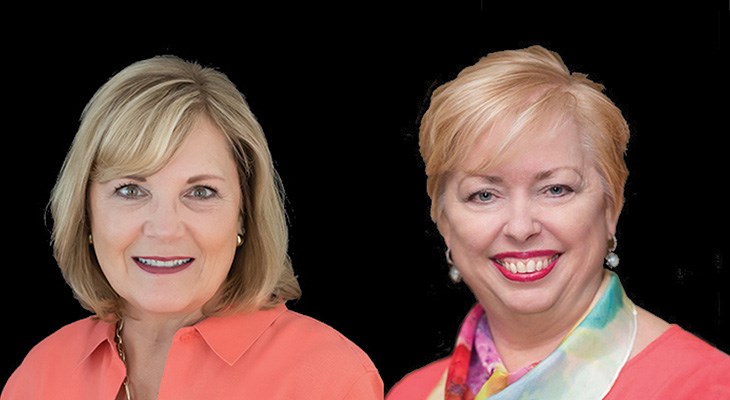There’s a mixed bag of news for women business owners.
First, the bad news. X-Squared Angels, which invested in women-led companies over the past six years, disbanded at the end of last year as membership fizzled.
Now, the good news. Early-stage and startup female founders seem to be on the rise. For example, the Women’s Small Business Accelerator’s program, The Inspired Entrepreneur, is now offered three times a year, and its April Spring Fireside Chat drew more than 50 women who wanted to hear about the available programs.
This week, we spoke with Mary McCarthy, WSBA co-founder and executive director, and Cindi Englefield, WSBA board chair and founder of Englefield Business Advisors, about what they’re seeing with women business owners.
Investment opportunities
While X-Squared Angels has closed, its leaders still hear from women-led companies trying to raise capital, says Englefield, a former X-Squared Angel investor who provides scholarships to WSBA programs. Typically, those entrepreneurs are pointed to Rev1 Ventures, and the information is circulated around to those in the network who are still active.
“We’re still getting information about companies that are seeking capital,” she says.
Englefield taught herself about investing by taking advantage of the resources available to her. Today, she’s made a half a dozen angel investments, such as Columbus-based Toasted Oat run by Erika Boll.
“Women helping women is really what I believe in,” Englefield says. “Not that the men didn’t give me a lot of information and support, but there’s nothing like having one of your peers, that are going through some of the similar issues as you, to team up with.”
In order to stay connected to potential investments, she’s has gotten involved with Rev1’s Ohio TechAngel Fund. As an angel-in-waiting, she can be an add-on investor, if that’s acceptable to the CEO.
Getting ready
The WSBA not only helps connect female entrepreneurs and investors, it also wants to help prepare them.
“Many women don’t really research and understand what they need to do,” McCarthy says. “If you go in and have a lot of passion, that’s great. But an investor wants to see how they’re going to get paid back and make money, so you have to be prepared to answer those questions.”
Women business owners often start out under-funded, don’t think large enough and are caught off guard when it comes time to think about funding, she says.
“We do need to be prepared, whether it’s self-funding, bank funding, private investor, all the way up to angels and VCs,” McCarthy says. “Everything has a specific focus that you need to do.”
Do you know your credit score or debt to income ratio? Are you ready to present your concept to investors?
“We’re big proponents of doing what we call informational interviews: get out there and talk to people,” she says. “Don’t make assumptions, but actually develop your business concept based on knowledge, and plan for success. We put them in front of people that would be willing to give them input and feedback, and then we do introductions to those that might be good funders.”
Thinking big
McCarthy helped co-found the WSBA in 2012 after she saw a U.S. Small Business Administration report about the differences between men and woman in business. It wasn’t anything new — in fact that was the problem. She didn’t want to be reading the same report in 10 years.
The organization started with volunteers, but has grown to employ McCarthy part time, along with three other part-time contractors as it has increased its programming.
The WSBA offers three signature programs: The Inspired Entrepreneur, a 20-week education course; Power Circles, a facilitated roundtable; and Mentor Match, a mentoring program.
Englefield says that the rise in co-working spaces has helped the organization attract new attention. When it holds events in these spaces, the WSBA finds women business owners already there who just need to think bigger.
“What we’re finding is exactly what we expected with a little bit of mentoring and guidance and honestly putting future business owners in front of some of these successful women, they are starting to see and realize that they can make things happen, too,” McCarthy says. “They can think differently. They can price more effectively. They’re allowed to brag about their successes, which is a four-letter word in more than one way.”
They also can define success exactly the way they want to, whether it’s having a business that just pays the bills or growing the company into the multimillions.




